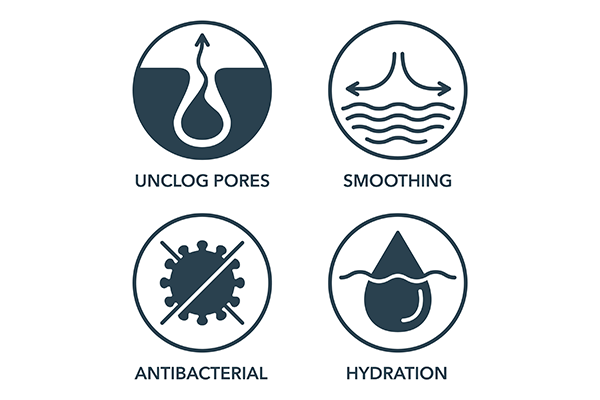
Facial swelling can appear suddenly or develop gradually, often leaving people worried about what might be happening inside their bodies. While in some cases, puffiness or a swollen face may simply be due to a salty dinner or lack of sleep, at other times, it may point towards a deeper medical issue. Understanding the causes of facial swelling, its symptoms, and when to seek medical help is important for timely treatment.
At Manipal Hospital Baner, specialists in dermatology and internal medicine work together to assess swelling, identify its root cause, and provide the right care.
Synopsis
What Is Facial Swelling?
Facial swelling occurs when fluid accumulates in the tissues of the face or when inflammation affects the skin and underlying structures. It may involve the eyes, cheeks, lips, or the entire face. Swelling can be mild and temporary or severe enough to interfere with daily life.

Common Causes of Facial Swelling
There are several reasons behind a swollen face, ranging from minor lifestyle triggers to chronic health conditions.
1. Allergic Reactions
One of the most frequent causes of facial swelling is an allergy. Reactions may occur due to foods, insect bites, dust, pollen, or medications. Along with swelling, you may notice itching, hives, or watery eyes. In severe cases, swelling may occur with breathing difficulty, which requires immediate medical care.
2. Infections
Dental abscesses, sinus infections, or skin infections like cellulitis often lead to swelling. These are usually painful, sometimes accompanied by fever or redness.
3. Injuries and Trauma
Sports injuries, accidents, or even cosmetic procedures can leave the face bruised and swollen.
4. Kidney or Liver Problems
Fluid retention is a common sign of kidney-related illness, often noticeable as a swollen face in the morning. Liver conditions may also cause puffiness along with swelling in other parts of the body.
5. Autoimmune Disorders
A frequent question patients ask is, "What autoimmune disease causes facial swelling?"
Conditions like lupus and dermatomyositis can trigger facial swelling due to inflammation of the skin and muscles. These disorders often present with other symptoms such as joint pain, skin rashes, or fatigue.
6. Thyroid Disease
Hypothyroidism (underactive thyroid) often results in puffiness around the eyes and a bloated appearance.
7. Lifestyle Factors
Everyday habits also play a role. Too much salt, poor sleep, dehydration, or alcohol can cause temporary swelling of the face.
Can Stress Cause Facial Swelling?
Yes, though indirectly. Stress can disrupt sleep, worsen teeth grinding (bruxism), and alter hormone levels, all of which contribute to puffiness. Stress also weakens immunity, making the body more prone to infections that may result in swelling.
Symptoms That May Accompany Facial Swelling
Swelling may come with additional warning signs:
-
Tenderness or pain.
-
Redness or rashes.
-
Fever or chills.
-
Breathing difficulty (medical emergency).
-
Swelling in other body parts, such as ankles or hands.
How to Treat a Swollen Face
Treatment depends on the underlying cause. Some common approaches include:
-
Allergy-related swelling → Antihistamines or prescribed allergy medication.
-
Infection-related swelling → Antibiotics or antifungal medicines.
-
Fluid retention → Reducing salt intake, staying hydrated, and improving sleep patterns.
-
Thyroid or autoimmune swelling → Long-term management guided by a specialist.
-
At-home remedies → Cold compress, gentle facial massage, and elevating the head while sleeping can help with mild puffiness.
When to Worry About Facial Swelling
Seek urgent medical attention if you notice:
-
Sudden swelling with difficulty breathing or swallowing (may indicate anaphylaxis).
-
Persistent swelling that does not improve with rest or lifestyle changes.
-
Pain, redness, or fever along with swelling (possible infection).
-
Recurrent swelling combined with fatigue, unexplained weight changes, or skin rashes.
Living With and Preventing Facial Swelling
-
Stay well-hydrated throughout the day.
-
Limit salty and processed foods.
-
Sleep with your head slightly elevated to prevent morning puffiness.
-
Protect your skin from allergens and practice good dental hygiene.
-
Manage stress with relaxation techniques like yoga and deep breathing.
Why Choose Manipal Hospital Baner?
At Manipal Hospital Baner, expert dermatologists, allergists, nephrologists, and endocrinologists collaborate to provide comprehensive care for patients with facial swelling. Whether it is a simple lifestyle cause or a sign of an underlying autoimmune or kidney disorder, our specialists ensure accurate diagnosis and personalised treatment.
Early intervention can make a significant difference, helping prevent complications and ensuring long-term well-being.
Conclusion
A swollen face is not always a cause for alarm; it may simply reflect a temporary lifestyle factor. However, if it persists, worsens, or is linked with other health symptoms, it is important to seek medical advice. Timely consultation at Manipal Hospital Baner ensures the right diagnosis and treatment for lasting relief. Consult an expert today!
FAQ's
Yes. Stress may contribute to swelling indirectly by disturbing sleep, affecting hormones, and lowering immunity.
Autoimmune disorders like lupus and dermatomyositis are known to cause swelling due to inflammation of the skin and tissues.
Cold compresses, drinking more water, cutting down on salt, and proper sleep can help reduce mild swelling.
Morning facial swelling may be due to fluid retention, sleeping position, kidney-related issues, or even high salt intake.
If swelling is sudden, painful, persistent, or comes with breathing difficulty or fever, seek medical help immediately.






















 4 Min Read
4 Min Read


















